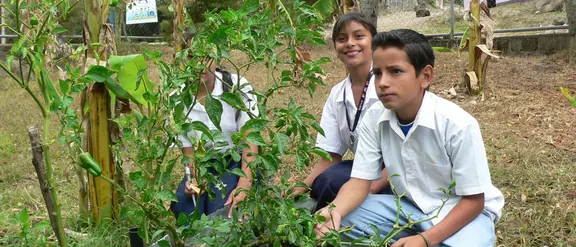Nicaragua: Children realize their right to a healthy environment
Nicaragua is the second poorest country in Latin America. In the north, in the project regions of Jinotega and Madriz, poverty rates are the highest in the country. These areas contain fragile ecosystems and nature reserves that are essential for preserving natural resources and securing the livelihoods of many inhabitants. However, these areas are threatened by deforestation, pollution, the expansion of agricultural production, pesticide use, and the effects of climate change.
Terre des Hommes has been working here for more than 15 years with its partner organization INPRHU-Somoto. INPRHU-Somoto has a strong network and extensive experience in the areas of children's rights, environmental education, and rural development. In 2012, with support from terre des hommes the organization launched a program to raise environmental awareness among young people, their families, farmers, traders, and community leaders in the region. The young people learned about their environmental rights and worked together on small-scale environmental protection projects: they established school and family gardens, separated and recycled waste, cleaned sewage systems, produced fertilizer from organic waste, and reduced the use of pesticides in gardens and fields.
Among the participating children and young people, as well as the adults and political leaders, an initial environmental awareness has developed. The follow-up project now focuses on the "bigger picture": influencing political decisions at the community level. To this end, the young people are expanding their activities and recruiting new supporters through innovative artistic methods such as folk and street theater, as well as creative communication and outreach strategies. In this way, they are transforming their villages into so-called "Green Communities" (Comunidad Verde). They are developing their own democratic representation structure and monitoring and overseeing the development of their communities.
